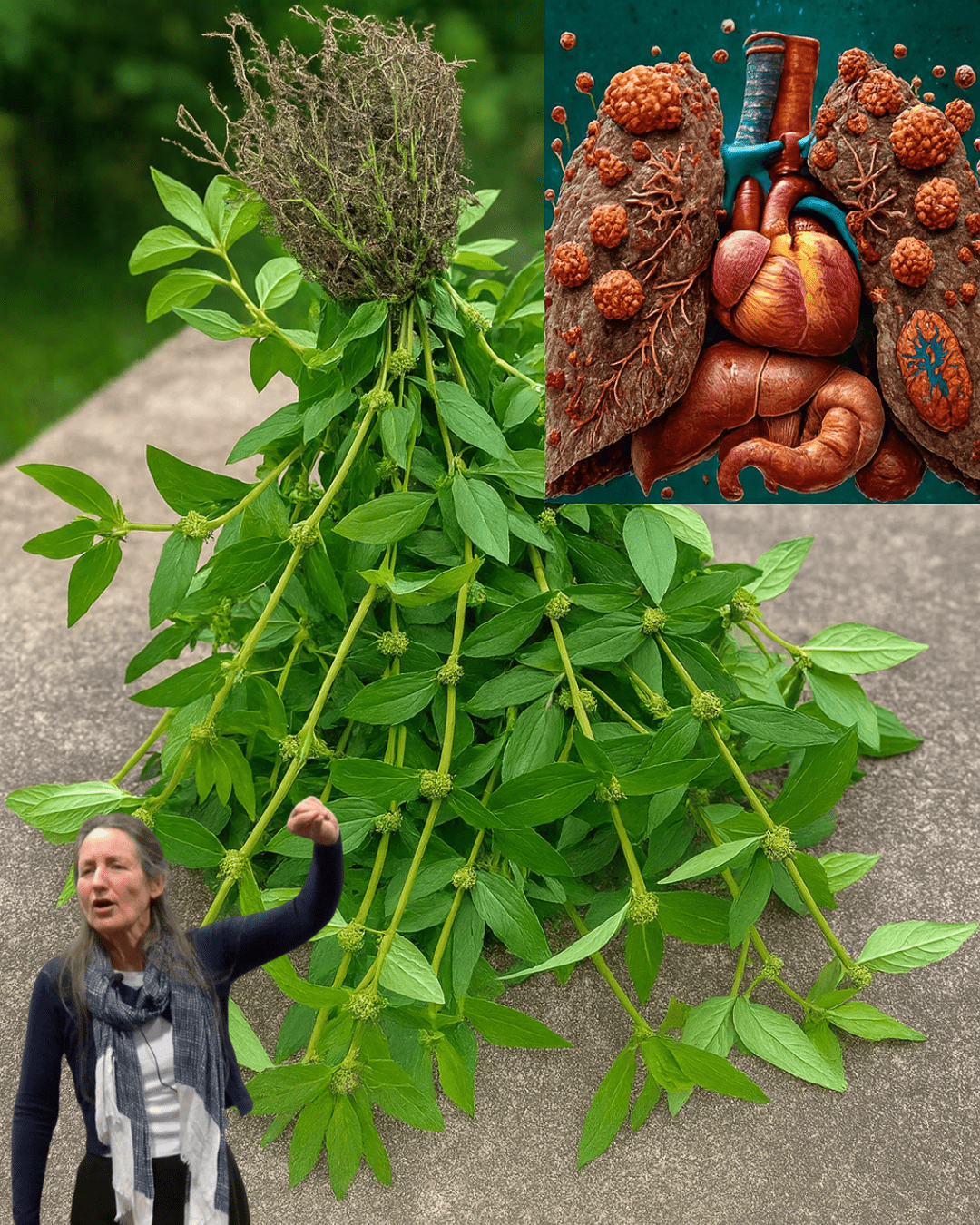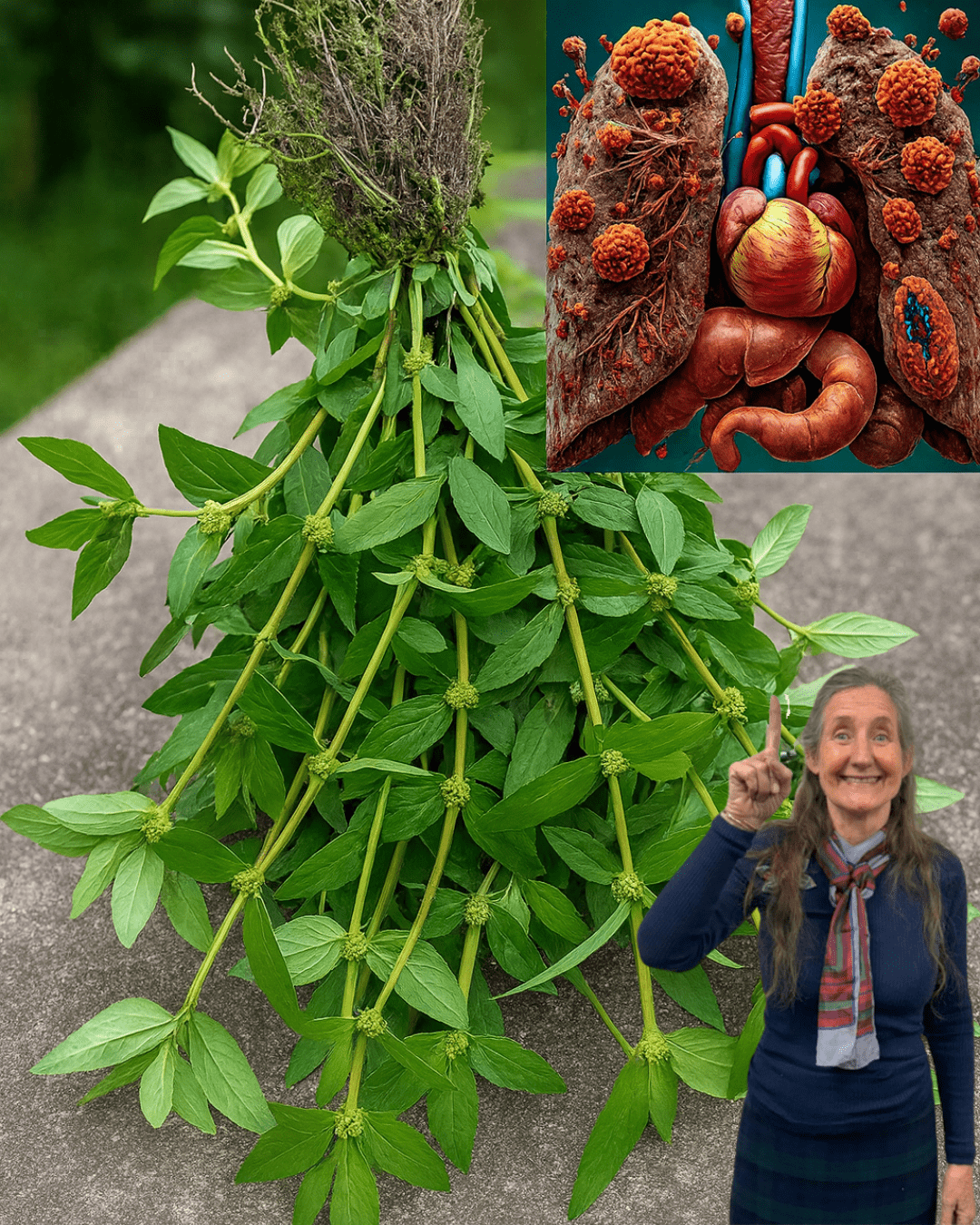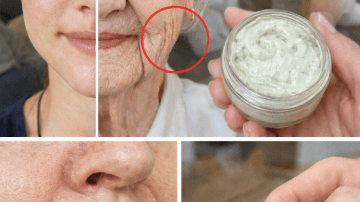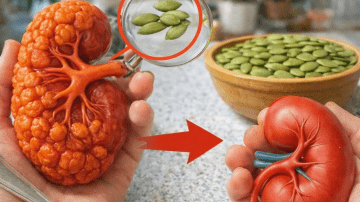What if the most powerful medicine was growing right under your feet, dismissed as a mere weed? Euphorbia hirta, a small, unassuming plant found in backyards, roadsides, and even sidewalk cracks, holds a treasure trove of healing potential that has captivated traditional healers for centuries. Known as asthma weed, snakeweed, or tawa-tawa, this humble herb is a global superstar in folk medicine, used across Africa, Asia, and Latin America to treat everything from asthma to skin infections. Modern science is now catching up, revealing a potent mix of bioactive compounds that make this plant a true “green gold.” Ready to discover why this backyard weed could be your next wellness secret? Let’s dive into its extraordinary benefits, practical uses, and how to harness its power safely.

🌱 What Is Euphorbia Hirta?
Euphorbia hirta is a small, hairy herb from the spurge family (Euphorbiaceae), thriving in tropical and subtropical regions worldwide. Often ignored as a pesky weed, it grows in the most unexpected places—open fields, garden corners, or even between pavement cracks. Yet, beneath its modest appearance lies a powerhouse of medicinal properties, revered in traditional practices for centuries.
🔍 Common Names and Cultural Significance
This plant goes by many names, each reflecting its deep-rooted role in folk medicine:
- Asthma Weed: Celebrated for easing respiratory conditions like asthma and bronchitis.
- Snakeweed: Traditionally used in some cultures to counter snakebites.
- Tawa-Tawa: A beloved remedy in the Philippines, especially for supporting dengue recovery.
Its versatility comes from a rich cocktail of bioactive compounds, including flavonoids, tannins, phenols, terpenoids, and alkaloids, which fuel its antimicrobial, anti-inflammatory, and antioxidant prowess. These compounds make Euphorbia hirta a go-to herb in rural communities, where it’s often more trusted than modern medicine.
💊 10 Remarkable Health Benefits of Euphorbia Hirta
Euphorbia hirta’s healing potential is vast, backed by both traditional wisdom and emerging scientific research. Here are ten compelling reasons to rethink this backyard weed.
1. 🌬️ Soothes Respiratory Challenges
Struggling with asthma, bronchitis, or a stubborn cough? Euphorbia hirta has been a trusted remedy for respiratory relief. Its bronchodilating and anti-inflammatory properties help open airways and ease breathing. Traditionally brewed as a tea, it’s a natural ally for clearer lungs.
2. 🩺 Supports Dengue Recovery
In the Philippines, “tawa-tawa tea” is a household name during dengue outbreaks. This herbal infusion is believed to support platelet count and hydration, helping patients recover faster. While not a cure, it’s a powerful complementary remedy when used under medical supervision.

3. 🦠 Fights Infections with Antimicrobial Power
Euphorbia hirta’s extracts are a natural weapon against bacteria and fungi. From wound cleaning to treating minor skin infections, its antimicrobial properties make it a go-to for topical applications in traditional medicine.
4. 🔥 Reduces Inflammation and Pain
Sore joints or chronic inflammation? The plant’s flavonoids and tannins work to reduce swelling and ease discomfort, making it a folk favorite for arthritis, muscle pain, and general inflammation.
5. 🍵 Calms Digestive Distress
For centuries, Euphorbia hirta has been used to soothe diarrhea, dysentery, and stomach cramps. Its tannins create a calming effect on the gut, offering relief from digestive woes.
6. 🩹 Heals Skin Naturally
From warts to boils to fungal infections, Euphorbia hirta’s sap or leaf paste is a traditional remedy for skin issues. Applied topically, it promotes healing and fights infection, restoring skin health.
7. 🩺 Regulates Blood Sugar
Emerging studies suggest Euphorbia hirta may help manage blood glucose levels, offering potential support for diabetes management. While more research is needed, its traditional use in this area is promising.
8. 💡 Eases Pain Naturally
Headaches, toothaches, or menstrual cramps? Euphorbia hirta’s mild analgesic properties make it a natural pain reliever in folk medicine, offering gentle relief without synthetic drugs.
9. 🚰 Promotes Urinary Health
With its diuretic properties, the herb supports urinary tract health, helping to relieve discomfort and promote detoxification in traditional practices.
10. 🛡️ Boosts Immunity with Antioxidants
Packed with antioxidants, Euphorbia hirta helps combat oxidative stress, strengthening the body’s defenses and supporting overall wellness.
📊 Quick Reference: Benefits and Uses
| Benefit | Traditional Use | Form |
|---|---|---|
| Respiratory Support | Asthma, cough | Tea, decoction |
| Dengue Recovery | Platelet support | Herbal infusion |
| Antimicrobial | Wounds, infections | Topical sap/paste |
| Anti-inflammatory | Joint pain, swelling | Decoction, compress |
| Digestive Aid | Diarrhea, cramps | Tea |
| Skin Health | Warts, boils | Topical |
| Blood Sugar Regulation | Diabetes support | Decoction |
| Pain Relief | Headaches, cramps | Tea |
| Urinary Health | UTIs, discomfort | Tea |
| Immunity Boost | General wellness | Tea, infusion |
🌿 How to Use Euphorbia Hirta Safely
Harnessing the power of Euphorbia hirta is simple, but it requires care and respect for its potency. Here are the most common traditional preparations and how to use them effectively.
1. 🍵 Herbal Tea (Decoction)
Boil a handful of fresh or dried leaves in water for 10–15 minutes. Strain and sip in moderation to support respiratory health, digestion, or immunity. A cup a day is often enough to feel the benefits.
2. 🩹 Topical Application
Crush fresh leaves or extract the sap and apply directly to minor wounds, boils, or fungal infections. This method leverages the plant’s antimicrobial and skin-healing properties.
3. 🩺 Dengue Support Infusion
In the Philippines, a light tea made from Euphorbia hirta is used to support dengue recovery. Always pair this with medical treatment and consult a healthcare provider.
⚠️ Safety First: Key Precautions
While Euphorbia hirta is a natural remedy, it’s not without risks. Keep these precautions in mind:
- Moderation is Key: Overuse can lead to nausea or stomach upset.
- Pregnancy and Breastfeeding: Avoid use, as its safety in these cases is unclear.
- Consult a Professional: Always check with a healthcare provider, especially for chronic conditions or when combining with medications.
🌍 Real-Life Stories: Euphorbia Hirta in Action
Across the globe, Euphorbia hirta has woven itself into the fabric of traditional healing. In rural India, families brew its tea with honey to calm asthma flare-ups, often reporting relief within hours. In the Philippines, tawa-tawa tea is a lifeline during dengue season, with families crediting it for boosting strength and hydration. In Africa, farmers apply leaf paste to treat skin infections in both humans and livestock, showcasing its versatility. These stories aren’t just folklore—they reflect the plant’s enduring role in communities where natural remedies are a way of life.
✨ Why Euphorbia Hirta Is Nature’s “Green Gold”
Euphorbia hirta is more than a weed—it’s a testament to nature’s ability to hide powerful medicine in plain sight. Its wide-ranging benefits, from soothing lungs to fighting infections, make it a cornerstone of traditional healing. Modern science is only beginning to unlock its full potential, with studies confirming its antimicrobial, anti-inflammatory, and antioxidant properties.
But it’s not a cure-all. While it can support recovery and symptom relief, it’s not a replacement for professional medical care. Used wisely, Euphorbia hirta can be a valuable addition to your wellness routine, bridging ancient wisdom with modern health goals.
🚀 Ready to Explore Euphorbia Hirta?
Next time you spot a small, hairy plant in your backyard, pause and consider: could this be Euphorbia hirta, nature’s hidden healer? Whether you’re brewing a tea for a cough, applying a paste for a skin issue, or simply curious about natural remedies, this “green gold” offers a world of possibilities. Always approach it with respect, consult a healthcare professional, and let this humble weed surprise you with its golden healing powers.
This content is for informational purposes only and does not replace professional medical advice. Always consult your healthcare provider before using herbal remedies.






